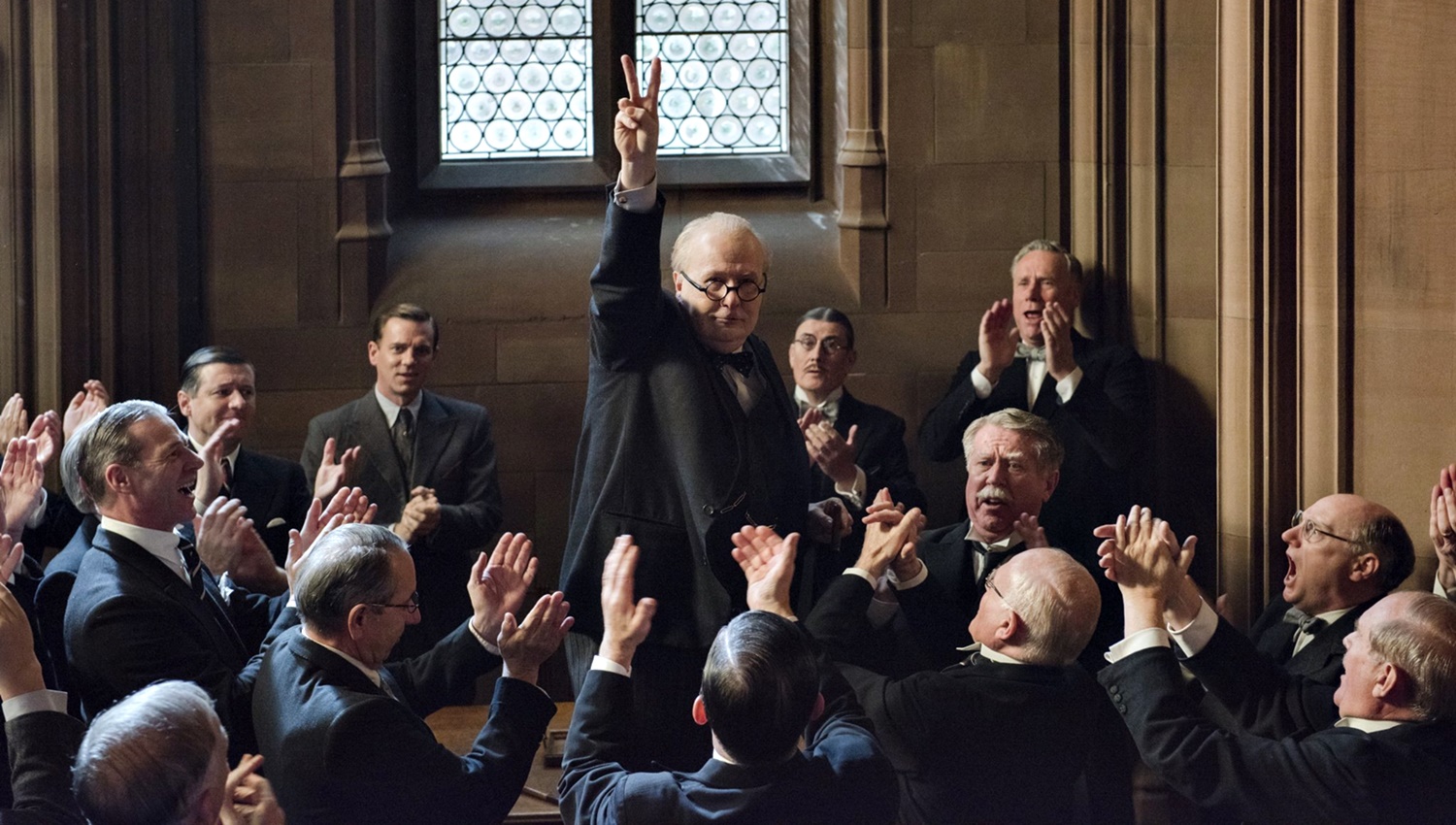
Darkest Hour
Dustin Chase
There was a huge wave of buzz after Darkest Hour debuted at Telluride. Not only just for the obvious best actor race, but even some mention of best picture. Mainstream American audiences will likely write this film off a stuffy historical drama where history plays out in a bunch of different rooms. It’s true that Darkest Hour could be a companion piece to Dunkirk, another presumed best picture nominee. I started out a huge admirer of director Joe Wright, his Keria Knightly collaborations remain his best work. However, Darkest Hour is certainly a step toward redemption for Wright following Pan. It might be the second film this year about Winston Churchill, but it’s the first guaranteed acting nomination. Only once nominated Gary Oldman (Tinker Taylor Soldier Spy) gives the epitome of an epic performance, but is that enough?
When parliament decides that Prime Minister Neville Chamberlain (Ronald Pickup) is no longer fit to lead England to victory against the Nazi threat, the larger than life, controversial Winston Churchill (Oldman) is chosen as the new Prime Minister. “You really must try to be more kind… and calm,” Clementine Churchill (Thomas) says. The king (Mendelsohn) isn’t thrilled with Churchill in charge, but supports him nonetheless as England is already backed into a corner, losing France and Belgium to Hitler. Some of parliament see no path to victory and try to convince the stubborn Churchill to negotiate peace, but he refuses to entertain that idea. He must carry the weight of the country on his shoulders and provide hope where there isn’t any.
With everything that’s good about Darkest Hour, the film is still not much more than a string of conversations that vary from calm to heated.
He’s overdue, often overlooked, completely transformed with padded body weight and facial prosthesis. Oldman was the 2017 front runner for best actor without question until awards season hit, then picking him seemed “uncool”. He will have great support from within the industry, having worked with the majority of voters but Oldman’s win is no longer a guarantee due to the rising popularity of Timothee Chalamet’s virtuoso performance in indie darling Call Me By Your Name. The talky historical flick won’t be everyone’s cup of tea, I found myself fighting sleep because either you already know the history because of well, history. Or you saw Churchill back in the spring where Brian Cox (also fantastic by the way) explores the same figure just in a slightly different era. With so many different Churchill performances out there currently on TV and film, voters and ticket buyers might not see the urgency for Darkest Hour. Churchill is the perfect role for an actor to exercise every muscle and ounce of talent they have. The entire movie is a continuous two-hour Oscar clip for Oldman. What’s even more surprising is how Oldman pulls off the funny one liner moments often in scenes of darkness and despair.
Most of the movie takes places in either the underground war room, inside Winston’s dark private quarters or in lavish rooms with the King. The setting is already cinematically claustrophobic because of the locations, but Wright is simultaneously playing into the erosion of Churchill war options. Wright throws in a few signature continual takes (nothing like his famous Dunkirk scene in Atonement), but his visual obsession in this film is the overhead (drone) shot. The production design is off the charts, sustaining the quality we have some to expect from Wright. With everything that’s good about Darkest Hour, the film is still not much more than a string of conversations that vary from calm to heated. An elaborate history lessons.
Final Thought
Darkest Hour is Gary Oldman’s finest hour, a performance that will hijack the 2017 awards race.
